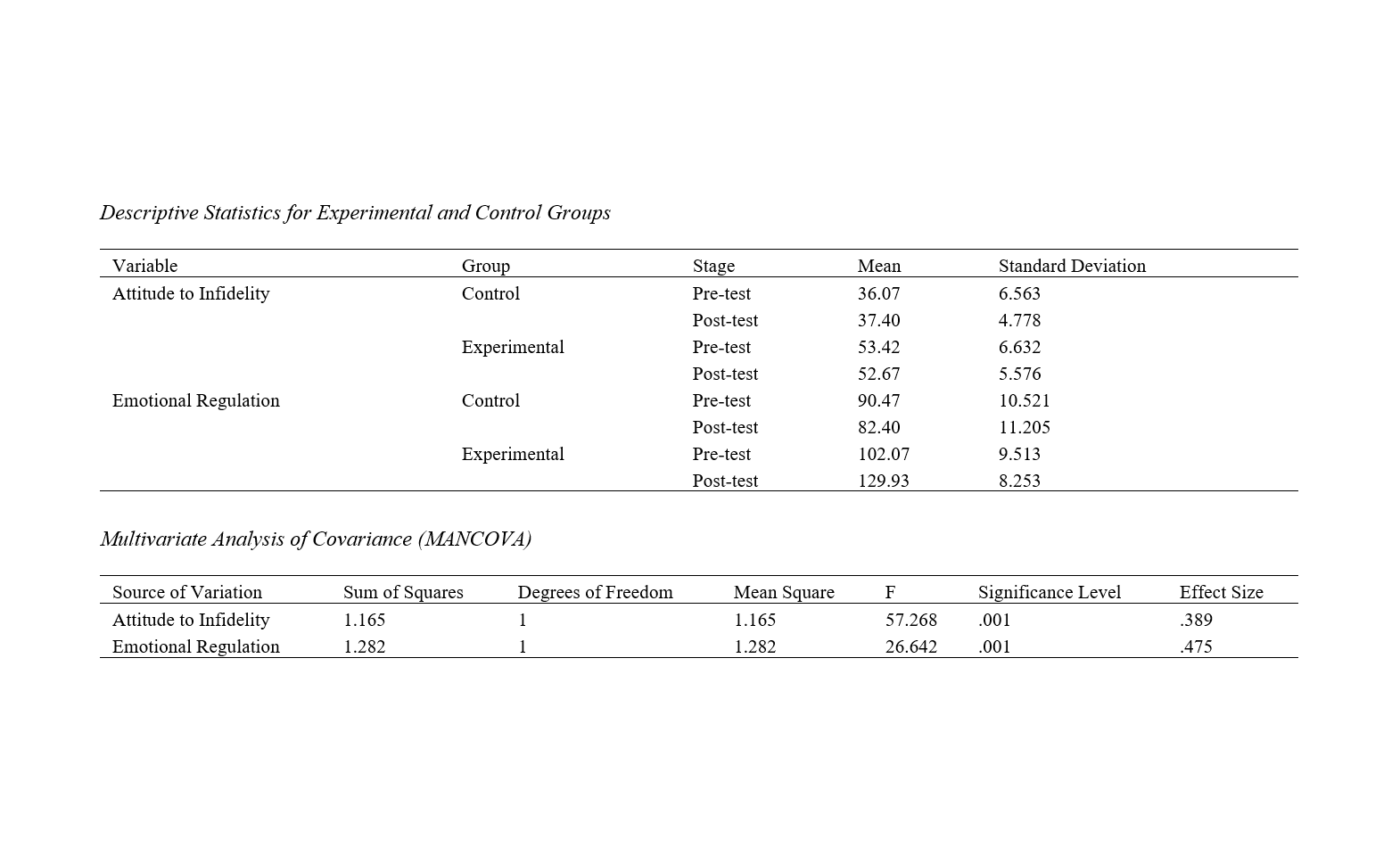Effectiveness of Acceptance and Commitment-Based Couples Therapy on Attitudes Towards Marital Infidelity and Emotional Regulation in Married Women
Keywords:
Acceptance and commitment therapy, marital infidelity, emotional regulation, womenAbstract
Objective: The aim of the present study was to investigate the effects of acceptance and commitment-based couples therapy on attitudes toward marital infidelity and emotional regulation in married women.
Methods: This research was a quasi-experimental study conducted using pre-test, post-test, and follow-up methods. The study population consisted of 30 married women visiting psychological services and counseling centers in Tehran in the fall of 2022, who were selected using a convenience sampling method and were randomly assigned to either the experimental or control groups. The experimental group received acceptance and commitment-based couples therapy, while the control group received no training. The standard questionnaire on the tendency toward marital infidelity by Bashirpour et al. (2018) and the Difficulties in Emotion Regulation Scale by Gratz and Roemer (2004) were distributed among all the study participants. Data were analyzed using repeated measures ANOVA with SPSS software version 22.
Findings: The results showed that couples therapy based on acceptance and commitment had a significant effect on attitudes toward infidelity (F = 57.26, p < .001) and emotional regulation (F = 26.64, p < .001) in married women.
Conclusion: It can be concluded that acceptance and commitment-based couples therapy is effective in influencing attitudes towards marital infidelity and emotional regulation in married women and can be used to improve the quality of married life.
Downloads

Downloads
Additional Files
Published
Issue
Section
License

This work is licensed under a Creative Commons Attribution-NonCommercial 4.0 International License.




















